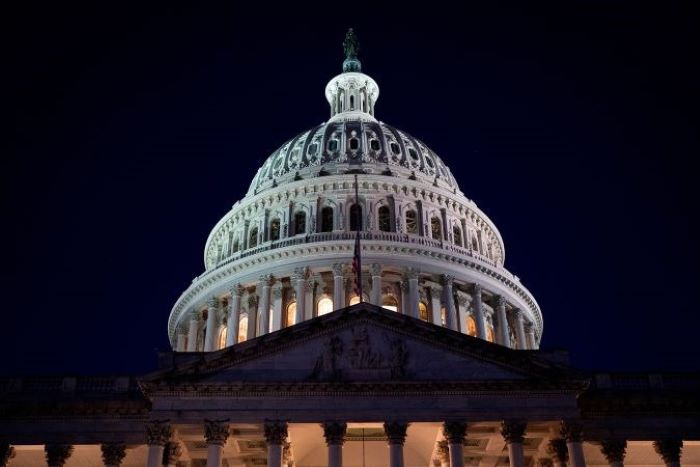In a decisive move, the United States Senate legislature has greenlit a $460 billion funding package, racing against the clock to prevent a looming partial government shutdown. The measure swiftly heads to President Joe Biden’s desk, ensuring timely enactment before the imminent deadline on Saturday.
Avert Crisis Through Bipartisan Efforts
Crafted to delineate expenditure trajectories until September, the funding arrangement allocates resources for approximately a quarter of federal agency operations. However, the specter of a funding shortfall looms large for the remaining segments of the government, with a looming March 23 ultimatum intensifying the urgency of fiscal negotiations.
Navigating Ideological Strife
Since the inception of the federal fiscal year on October 1, ideological skirmishes over government spending have ensnared Capitol Hill, impeding swift funding resolutions. The protracted deadlock has birthed five instances of threatened shutdowns, each narrowly averted moments before the precipice. Remarkably, financial markets have demonstrated resilience, largely unfazed by the recurring brinkmanship, betting on the inevitability of bipartisan compromise.
Bipartisan Unity Prevails
According to Barron’s report, the legislature’s resounding endorsement of the package was manifested in a 75 to 22 vote on Friday evening. This underscores a rare display of bipartisan unity. Crafted through meticulous negotiations spearheaded by congressional leaders from both ends of the political spectrum, the funding agreement received resounding support. This occurred earlier this week in the House of Representatives.
Celebrating Bipartisan Achievement
Senate Majority Leader Chuck Schumer seized the moment to extol the bipartisan feat. He affirmed, “To those apprehensive about the efficacy of divided governance, this bipartisan accord stands as a testament to the contrary.” It extends a helping hand to parents, veterans, firefighters, farmers, school cafeterias, and myriad others across the nation.”
Conservative Discontent and Compromises
However, fissures within the conservative camp cast a pall over the legislative victory. Anticipating limited gains in forthcoming negotiations, particularly pertaining to allocations for the Defense and Homeland Security departments, conservatives voiced frustration. House Speaker Mike Johnson’s steadfast refusal to use a government shutdown as leverage for fiscal austerity measures left many dismayed. This was especially notable as numerous Republicans, including Johnson himself, secured pet projects earmarked within the bill.
Broad Implications of the Funding Package
The ratified funding package covers a wide array of federal departments and agencies. The departments and agencies encompassed are Agriculture, Interior, Commerce, Justice, Transportation, Housing and Urban Development, Energy, Veterans Affairs, the Environmental Protection Agency, Food and Drug Administration, and NASA. Republicans notably secured a modest reduction in domestic funding. This reduction excluded veterans’ healthcare. However, they fell short of their goal for a 22% cut.
Policy Battles and Compromises
Democrats successfully resisted conservative policy overhauls, spanning from abortion restrictions to defunding inquiries into the previous administration. However, within the legislature, Republicans secured a provision easing firearms procurement for veterans classified as mentally incompetent. This clause, however, prompted some Democrats to dissent against the comprehensive funding measure.
A Temporary Reprieve Amidst Ongoing Discord
he nation breathes a collective sigh of relief as the legislature ratifies the $460 billion funding package. This heralds a temporary reprieve from the perpetual fiscal brinkmanship gripping Washington. However, it occurs against a backdrop of simmering ideological discord.
Secure a 2-year subscription to The Wall Street Journal: Receive daily delivery six days a week and access WSJ Digital. Stay fully informed about finance, politics, healthcare, and global events. Dive into expert insights and trustworthy evaluations to broaden your perspective. To order your subscription, call WSJ cell phone: (800) 581-3716

